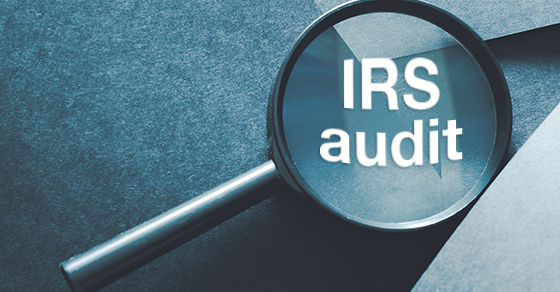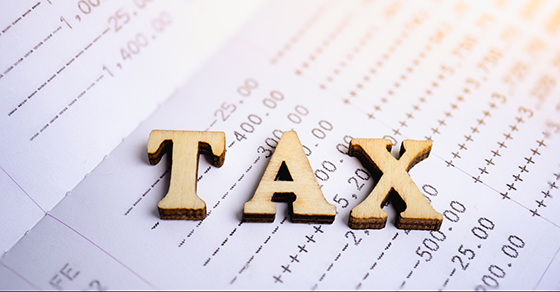 There are several ways to save for your child’s or grandchild’s education, including with a Coverdell Education Savings Account (ESA). Although for federal tax purposes there’s no upfront deduction for contributions made to an ESA, the earnings on the contributions grow tax-free. In addition, no tax is due when the funds in the account are distributed, to the extent the amounts withdrawn don’t exceed the child’s qualified education expenses.
There are several ways to save for your child’s or grandchild’s education, including with a Coverdell Education Savings Account (ESA). Although for federal tax purposes there’s no upfront deduction for contributions made to an ESA, the earnings on the contributions grow tax-free. In addition, no tax is due when the funds in the account are distributed, to the extent the amounts withdrawn don’t exceed the child’s qualified education expenses.
MORDFIN Blog (page 61)
Buy or lease? Both can benefit nonprofits
 If your not-for-profit owns its own facility, it likely will have more control of work space than if you lease. However, ownership carries risks — and leasing can provide several advantages. If you’re trying to make a buy-or-lease decision, be sure to weigh the following factors.
If your not-for-profit owns its own facility, it likely will have more control of work space than if you lease. However, ownership carries risks — and leasing can provide several advantages. If you’re trying to make a buy-or-lease decision, be sure to weigh the following factors.
Understanding and controlling the unemployment tax costs of your business
 As an employer, you must pay federal unemployment (FUTA) tax on amounts up to $7,000 paid to each employee as wages during the calendar year. The rate of tax imposed is 6% but can be reduced by a credit (described below). Most employers end up paying an effective FUTA tax rate of 0.6%. An employer taxed at a 6% rate would pay FUTA tax of $420 for each employee who earned at least $7,000 per year, while an employer taxed at 0.6% pays $42.
As an employer, you must pay federal unemployment (FUTA) tax on amounts up to $7,000 paid to each employee as wages during the calendar year. The rate of tax imposed is 6% but can be reduced by a credit (described below). Most employers end up paying an effective FUTA tax rate of 0.6%. An employer taxed at a 6% rate would pay FUTA tax of $420 for each employee who earned at least $7,000 per year, while an employer taxed at 0.6% pays $42.
Watch out for tax-related scams
 “Thousands of people have lost millions of dollars and their personal information to tax scams,” according to the IRS. Criminals can contact victims through regular mail, telephone calls and email messages. Here are just two of the scams the tax agency has seen in recent months.
“Thousands of people have lost millions of dollars and their personal information to tax scams,” according to the IRS. Criminals can contact victims through regular mail, telephone calls and email messages. Here are just two of the scams the tax agency has seen in recent months.
Fight fundraising obstacles with personal appeals
 It’s no secret that this is a challenging time for charitable fundraising. In its annual Giving USA 2019 report, the Giving USA Foundation noted a decrease in individual and household giving, blaming such impersonal factors as tax law changes and a wobbly stock market.
It’s no secret that this is a challenging time for charitable fundraising. In its annual Giving USA 2019 report, the Giving USA Foundation noted a decrease in individual and household giving, blaming such impersonal factors as tax law changes and a wobbly stock market.
The chances of an IRS audit are low, but business owners should be prepared
 Many business owners ask: How can I avoid an IRS audit? The good news is that the odds against being audited are in your favor. In fiscal year 2018, the IRS audited approximately 0.6% of individuals. Businesses, large corporations and high-income individuals are more likely to be audited but, overall, audit rates are historically low.
Many business owners ask: How can I avoid an IRS audit? The good news is that the odds against being audited are in your favor. In fiscal year 2018, the IRS audited approximately 0.6% of individuals. Businesses, large corporations and high-income individuals are more likely to be audited but, overall, audit rates are historically low.
Take advantage of the gift tax exclusion rules
 As we head toward the gift-giving season, you may be considering giving gifts of cash or securities to your loved ones. Taxpayers can transfer substantial amounts free of gift taxes to their children and others each year through the use of the annual federal gift tax exclusion. The amount is adjusted for inflation annually. For 2019, the exclusion is $15,000.
As we head toward the gift-giving season, you may be considering giving gifts of cash or securities to your loved ones. Taxpayers can transfer substantial amounts free of gift taxes to their children and others each year through the use of the annual federal gift tax exclusion. The amount is adjusted for inflation annually. For 2019, the exclusion is $15,000.
Avoid excess benefit transactions and keep your exempt status
 One of the worst things that can happen to a not-for-profit organization is to have its tax-exempt status revoked. Among other consequences, the nonprofit may lose credibility with supporters and the public, and donors will no longer be able to make tax-exempt contributions.
One of the worst things that can happen to a not-for-profit organization is to have its tax-exempt status revoked. Among other consequences, the nonprofit may lose credibility with supporters and the public, and donors will no longer be able to make tax-exempt contributions.
When is tax due on Series EE savings bonds?Your Blog Post Title Here…
 You may have Series EE savings bonds that were bought many years ago. Perhaps you store them in a file cabinet or safe deposit box and rarely think about them. You may wonder how the interest you earn on EE bonds is taxed. And if they reach final maturity, you may need to take action to ensure there’s no loss of interest or unanticipated tax consequences.
You may have Series EE savings bonds that were bought many years ago. Perhaps you store them in a file cabinet or safe deposit box and rarely think about them. You may wonder how the interest you earn on EE bonds is taxed. And if they reach final maturity, you may need to take action to ensure there’s no loss of interest or unanticipated tax consequences.
Protecting youth sports leagues from fraud
 Who would defraud a kids’ organization? The answer, unfortunately, is that trusted adults sometimes steal from not-for-profits benefiting children. Youth sports leagues and teams, for example, are ripe for fraud. Cash transactions are common, and coaches and board members usually are volunteers with little accountability.
Who would defraud a kids’ organization? The answer, unfortunately, is that trusted adults sometimes steal from not-for-profits benefiting children. Youth sports leagues and teams, for example, are ripe for fraud. Cash transactions are common, and coaches and board members usually are volunteers with little accountability.
